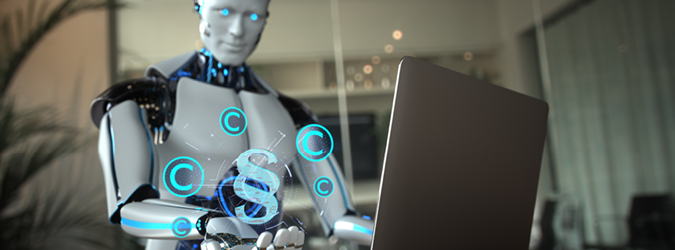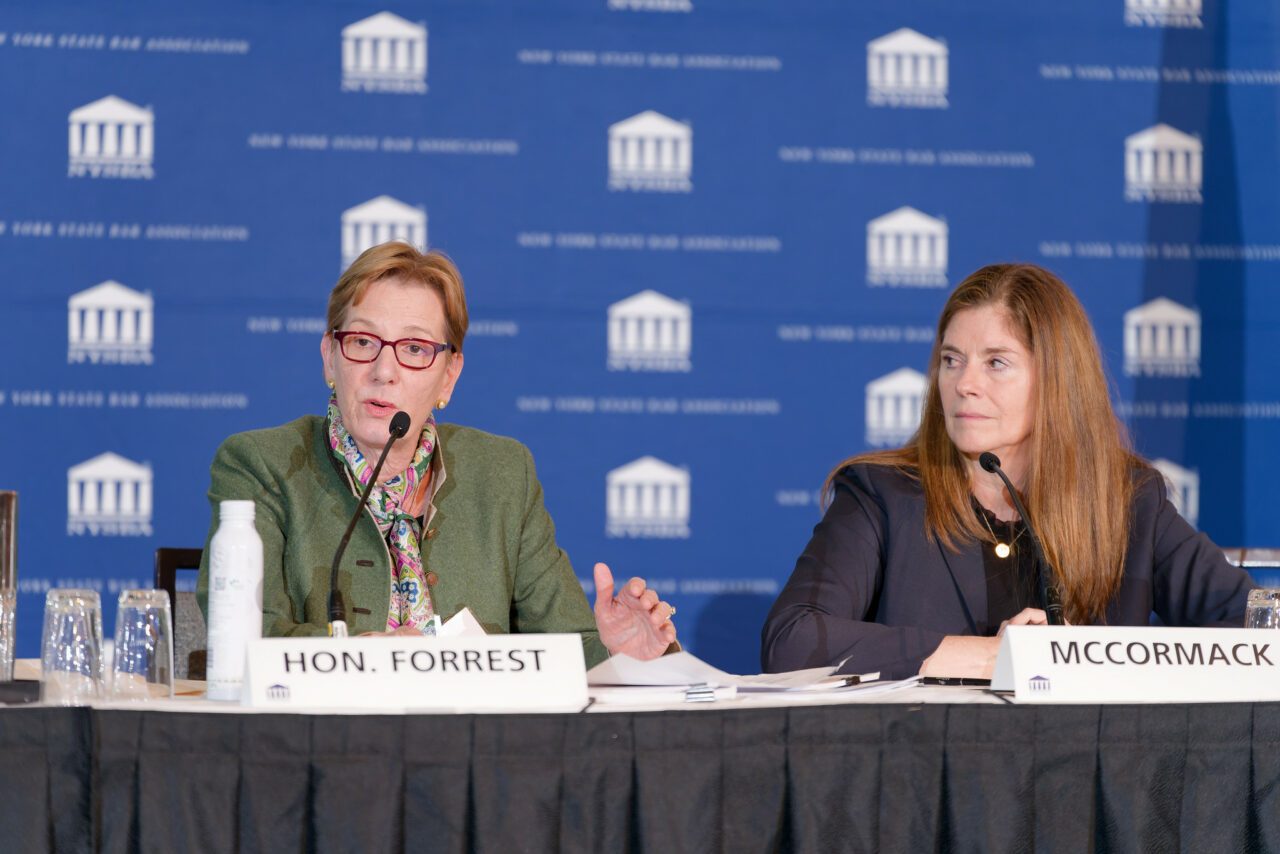Navigating the Ethical and Technical Challenges of ChatGPT
5.17.2023

Since its release in Nov. 2022, many people have been impressed by ChatGPT’s ability to understand context, generate fast responses and have a human-like conversational tone. The potential applications for ChatGPT in the legal industry are varied. As technology continues to develop, it is inevitable that this kind of technology will be incorporated into the practice of law. Whether it can help increase access to legal services or improve efficiency in the legal industry, such incorporation will come at a cost.
ChatGPT is a natural language processing tool that can aid lawyers and legal professionals with legal research, contract review and client communication. It is capable of understanding human language and responding conversationally. The latest addition to ChatGPT, AutoChatGPT, will enable it to draft legal documents such as contracts, generate legal forms and complete routine legal tasks automatically. Although ChatGPT and AutoChatGPT can enhance efficiency and productivity by automating mundane tasks, they also pose potential risks to the legal profession.
The incorporation of ChatGPT in the legal industry presents many challenges, ranging from ethical issues to technological limitations. Before using ChatGPT in practice, attorneys have a duty to provide competent representation to their clients.[1] To maintain such competence, attorneys should stay up to date with the benefits and risks associated with relevant technology.[2] Confidentiality, security and privacy are potential risks associated with ChatGPT.
Attorneys have an ethical duty to maintain client confidentiality and must take steps to protect client information from unauthorized disclosure.[3] Using ChatGPT to analyze clients’ legal documents that contain confidential information poses a risk that such information could be exposed or misused. Recently, there was a data leak in ChatGPT that allowed its users to view the chat history titles of other users, revealing the information of nearly 1.2% of ChatGPT Plus subscribers.[4] In addition to the data breach, chat history can be accessed and reviewed by ChatGPT employees.[5] It can also provide personal information to third-party vendors and affiliates, raising concerns about data security and privacy.[6]
If attorneys decide to use non-attorneys outside their firms, they have a duty to make reasonable efforts to ensure that the services are provided in a manner that is compatible with the lawyer’s professional obligations.[7] This means attorneys are responsible for ensuring that ChatGPT is compatible with their ethical obligations, such as data retention. OpenAI, the parent company of ChatGPT, states in its privacy policy that it is “not responsible for circumvention of any privacy settings or security measures contained on the Service, or third-party websites.”[8] For example, it is unclear what the length and protection of the data retention policy of ChatGPT is.[9] If ChatGPT is used to analyze clients’ documents that contain confidential information, it’s important to ensure that proper retention and destruction policies are in place to protect client privacy.
There are other potential technological challenges that ChatGPT can create in law practice. ChatGPT’s accuracy and reliability are not guaranteed. When dealing with large, complex legal documents, attorneys must verify the accuracy of their work product. ChatGPT has limited access to the internet, and its knowledge is limited to events up to 2021.[10] This means ChatGPT is unable to stay current with the latest changes in law. It may sometimes make up facts.[11] Not only can it make up facts but it can misstate caselaw without citing the correct portion of cases.
While ChatGPT can understand context and relate to prior chat history, its contextual understanding is still narrow. It is particularly limited in the context of legal cases and documents. As a result, it may produce inaccurate outcomes. It is also unclear whether ChatGPT has been trained on legal technicalities, including legal theories, which could lead to errors in its advice and legal documents.
The concept of automation in the legal industry is not a new idea, and there have been several initiatives that have gained popularity among legal professionals. One such initiative is DoNotPay, a website that offers legal services, including legal document generation and online dispute resolution, for a range of preset legal issues such as parking tickets, flight delays and landlord-tenant disputes.[12] ChatGPT, however, is not limited to a specific set of legal issues. It can provide legal information and generate basic legal documents that are customizable for specific law practices. While both DoNotPay and ChatGPT offer legal assistance, it remains unclear how ChatGPT’s technology will advance when trained on a large database of legal documents.
The ChatGPT technology is currently in development, and AutoChatGPT is its latest iteration. While ChatGPT can only handle one task at a time, AutoChatGPT is capable of processing multiple tasks automatically, generating its own prompts and completing multi-step procedures without human input.[13] AutoChatGPT has the potential to automate routine legal tasks, including contract drafting and legal research. However, this automation raises ethical concerns surrounding the autonomy and accuracy of its work product.
The reliance on ChatGPT technology to automate repetitive legal work may exacerbate the existing generational gap in legal employment, disadvantaging younger attorneys, paralegals and legal assistants. While the technology offers efficiency and accuracy, senior attorneys may be less likely to train younger attorneys and instead opt to use the technology. This could hinder the development and progression of younger legal professionals and supporting staff in the legal field.
The incorporation of ChatGPT and other Large Language Models into the legal industry is becoming increasingly inevitable. Leading legal research companies, including Westlaw and LexisNexis, may integrate this technology to gain an edge in the legal market. These companies possess large databases that can train LLMs to find accurate results in legal research. They can also review and analyze large volumes of documents, such as contracts or pleadings. One of the most significant features of this technology is predictive analysis, which can assist attorneys in making strategic decisions and provide insights into potential outcomes of legal cases.
It is important to recognize that ChatGPT and other LLMs should not be viewed as a replacement for the practice of law. While such technology can assist with daily tasks and improve efficiency, it cannot replace the legal skills and judgment of attorneys.[14] Comparably to the medical field, LLMs can be trained on specific data and images to enhance the accuracy of detecting medical conditions. Similarly, ChatGPT and other LLMs can be trained on specific legal information to support the practice of law.
Overall, the potential challenges and opportunities for using ChatGPT in the legal industry are significant. While there are ethical concerns and technical challenges that need to be addressed, the potential benefits of increased efficiency and improved access to justice make the use of AI tools, such as ChatGPT, an exciting prospect for the legal industry.
[1] ABA Model Rules of Professional Responsibility, Rule 1.1 (ABA Rules), https://www.americanbar.org/groups/professional_responsibility/publications/model_rules_of_professional_conduct/rule_1_1_competence.
[2] Comment 8 of ABA Rules, Rule 1.1, https://www.americanbar.org/groups/professional_responsibility/publications/model_rules_of_professional_conduct/rule_1_1_competence/comment_on_rule_1_1.
[3] ABA Rules, Rule 1.6, https://www.americanbar.org/groups/professional_responsibility/publications/model_rules_of_professional_conduct/rule_1_6_confidentiality_of_information.
[4] Andrew Tarantola, OpenAI Says a Bug Leaked Sensitive ChatGPT User Data, Engadget, March 24, 2023, https://www.engadget.com/openai-says-a-bug-leaked-sensitive-chatgpt-user-data-165439848.html
[5] Natalie, What Is ChatGPT?, help.openai.com, https://help.openai.com/en/articles/6783457-what-is-chatgpt (last visited April, 24, 2023).
[6] Privacy Policy, OpenAI, April 27, 2023, https://openai.com/policies/privacy-policy.
[7] ABA Rules, Rule 5.3, https://www.americanbar.org/groups/professional_responsibility/publications/model_rules_of_professional_conduct/rule_5_3_responsibilities_regarding_nonlawyer_assistant/comment_on_rule_5_3.
[8] Privacy Policy, supra note 6.
[9] Id.
[10] What Is ChatGPT?, supra note 5.
[11] Id.
[12] https://donotpay.com; ABA Rules, Rule 1.1,
https://www.americanbar.org/groups/professional_responsibility/publications/model_rules_of_professional_conduct/rule_1_1_competence.
[13] Comment 8 of ABA Rules, Rule 1.1 https://www.americanbar.org/groups/professional_responsibility/publications/model_rules_of_professional_conduct/rule_1_1_competence/comment_on_rule_1_1/; ABA Rules, Rule 1.6 https://www.americanbar.org/groups/professional_responsibility/publications/model_rules_of_professional_conduct/rule_1_6_confidentiality_of_information; Andrew Tarantola, supra note 4; Bernard Marr, Auto-GPT May Be the Strong AI Tool That Surpasses ChatGPT, Forbes, April 24, 2023, https://www.forbes.com/sites/bernardmarr/2023/04/24/what-is-auto-gpt-a-next-level-ai-tool-surpassing-chatgpt.
[14] Ravin Jesuthasan, Here’s How Companies Should Navigate Generative AI in the World of Work, World Economic Forum, April 14, 2023, https://www.weforum.org/agenda/2023/04/how-companies-should-navigate-generative-ai-in-future-of-work.






